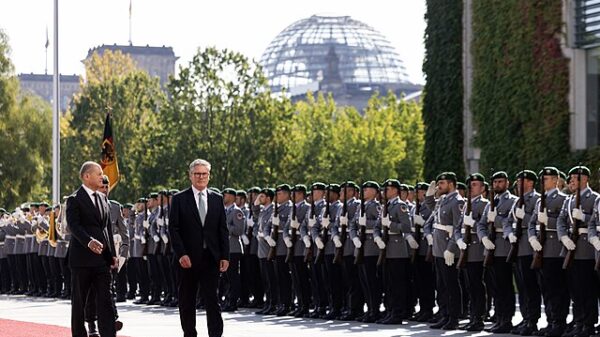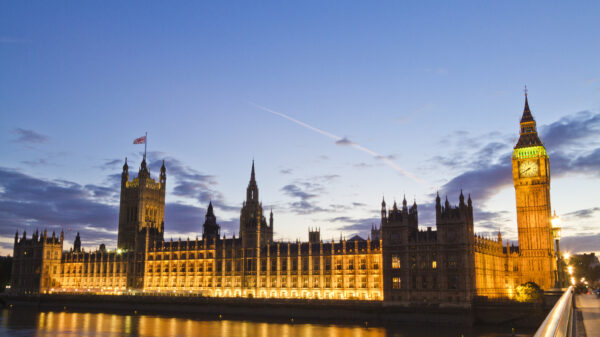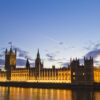Guest writer Sahar Rabbani argues that Labour is sacrificing its progressive ideology in order to stay on top in the polls
As Britain is now on its third Prime Minister of the year, many are looking to the opposition to provide a semblance of stability in Parliament. Public attention has been on the Labour party, as we see the party score a 48% opinion polling average in the week of the 4th of November. Although the longstanding chaos in the Conservative party has given Labour an increase in public favour, Rishi Sunak’s first full week as PM has reclaimed 5% of ground previously lost in opinion polls. Tensions are high, and each leader’s statements on contentious issues can cause a massive change in the polls.
This leads us to notice a contradiction within Labour; where Starmer’s rhetoric can be seen to converge more with Conservatives than expected from the opposition party. Recent events regarding immigration and climate activism highlight this.
On the 30th of October, news of a firebomb attack at a migrant processing centre in Dover broke out. 66 year-old Andrew Leake, who was found to be posting Islamophobic sentiments online on Facebook, was guilty of throwing petrol devices in the migrant centre.
The response from the Conservatives was appalling, yet given their history of anti-immigration policies, unsurprising, with the Home Secretary, Suella Braverman, having claimed that Southern British coast facing an “invasion of migrants”, just a day after the attack had taken place. The Manston migrant centre was also reporting cases of diphtheria and MRSA, likely caused by overcrowding. Braverman had failed to act on legal advice on the duration to keep asylum seekers at the centre, as Manston was designed to keep migrants there for 24 hours, while families were seen to be kept at the centre for over a month.
The former top official of the Home Office, Sir David Normington, suggested it could be a breach of ministerial code if Ms. Braverman had deliberately decided not to book hotels to address overcrowding, as ministers are not allowed to knowingly break the law. Two government sources have informed Sky news that they think Braverman ignored official advice and failed to sign off on providing accommodation that would have processed migrants within expected time frames.
Ministers are expected to resign if they break the ministerial code, a process Braverman is familiar with, having resigned on the October 19th as Liz Truss’s Home Secretary, after facing scrutiny for using her personal email for professional issues.
This clear failure in Tory immigration policy was an easy opening for the opposition to critique the way in which the Conservative government has been operating. Labour has not hesitated to use this opportunity to highlight their rival’s shortcomings, with criticisms of the language Braverman used and the xenophobic rhetoric being employed in Parliament. Yet, only days after this incident, the Shadow Immigration Minister, Stephen Kinnock, introduced the idea of a Labour government beginning a process of using ID cards to help count how many people are in Britain to “reduce irregular immigration”. This is not a novel concept, but one that the party had unsuccessfully introduced 20 years ago; failing after it raised questions about infringing civil liberties regarding data collection. Yet, Kinnock insists that the policy would be “so helpful” in reassuring the public that “we have control over our borders”.
When comparing the reactions side by side, we can see many commonalities between the parties’ perspective on immigration issues. Although the Labour party haven’t used inflammatory language as Braverman has, the shared sentiment is clear: you are not welcome here, and we our party will make policy to reflect that. Although the opposition has used more refined and diplomatic phrasing, it is clear that both parties share a desire to control the border by any means possible; for some this means neglecting migrant centres, and for others this means creating a bureaucratic spiderweb to catch unwanted migrants. Labour opposition is starting to have some clear contradictions; although the Shadow Home Secretary Yvette Cooper has made a bold claim to overhaul the asylum system in order to tackle the backlog of cases, they offer little in regards to actually fostering a national attitude that handles migration in a way that is not build on exclusivity. The two parties have just employed different methods in expressing the same “us versus them” dichotomy.
Another contentious issue has been regarding the ongoing climate protests and civil disobedience, being headlined by the ‘Just Stop Oil’ campaign group. Their main aim is to halt the government plans for new licences in the exploration of oil and other fossil fuels in the UK, as the government plans to license more than 100 new oil and gas projects by 2025. They have been working to end fossil fuels, increase investment in renewable energy, and increase the insulation of homes to avoid energy waste. Various methods of civil disobedience have been employed in achieving this, including being tied to goalposts, throwing soup at paintings, caking a wax figurine of King Charles III, and most controversially, gluing themselves and obstructing motorways and other forms of national infrastructure.
The group has reason for their recent outrage- Rishi Sunak has had an extensive track record in his previous positions, of voting against measures to lower emissions, cutting funding for key energy efficiency measures, abandoning schemes to insulate homes, as well as planning to halve taxes on domestic flights. Overall, his economic policy positioning shows that he is unlikely to make a lasting change in climate policy.
Debating the morality of the climate protests has been exhausted, and the government’s responsibility to look over the efficiency of public services takes primacy over their acts of civil disobedience. Therefore, seeing the opposition back the Tories in their plans to punish the protestors seems necessary to many. However, there is a notable contradiction in Starmer’s firm tone in backing stiff sentences for climate protestors. As he openly calls the protestors “wrong” and “arrogant”, we might forget that the current Labour manifesto has a pledge for no new oil and gas licences. In this way, Starmer has been publicly disapproving of protestors who are fighting for the very policies that his party plan to enact. The amount of time spent by Labour in reiterating the need for protestors to “get up [and] go home”, has led many to question the party’s confidence in claiming to stop the introduction of new oil fields or fossil fuel expansion. Although the opposition do have the Tories trumped in their alleged dedication to net zero policy, a pattern of contradictions has been noticed.
Recent events have shown months of efforts in trying to move away from Labour’s Corbyn-era coming to light. In order to win the majority in opinion polls, they have adopted a centrist position, that has brought them closer to the Conservative party, unlike under their previous leadership. Starmer has even been urged by his cabinet to remove Corbyn from the party, due to Sunak’s repeated attempts to tie him to Corbyn, as he had worked as Corbyn’s shadow Brexit secretary.
It suggests that in order to win over the average voter, Labour is moving away from advocating for young progressives, and the issues regarding immigration that are close to the hearts of many ethnic minorities in the UK. It’s implied that they have now taken the vote of younger people, and people of colour, for granted, and are mobilising the party in order to gain traction with predominantly white, middle class voters. Although it seems to be paying off in their opinion poll ratings, it has definitely raised some alarms regarding their dedication to challenging the Conservatives on hard policy.
Sahar Rabbani is a 2nd year BA in Politics student at King’s
Want to write for Roar? You can apply as a Staff writer here or submit guest pitches by emailing [email protected]
Sahar Rabbani















